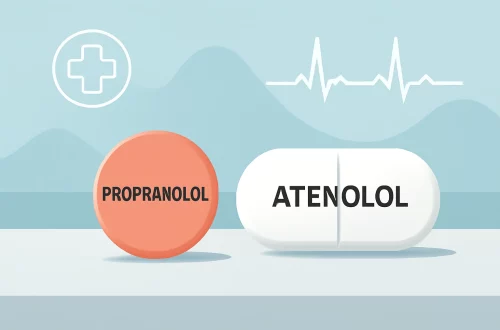
Is Gin Healthy? Exploring the Benefits and Risks of this Popular Spirit
The popularity of gin has surged in recent years, becoming a staple in bars and homes alike. This clear spirit, distilled from juniper berries and a variety of botanicals, has a rich history that dates back hundreds of years. Once considered a lowly drink associated with the working class, gin has transformed into a sophisticated beverage enjoyed by connoisseurs worldwide. With this newfound fame, questions about its health implications have emerged.
For many, enjoying a gin and tonic or a martini is a pleasurable experience, often associated with social gatherings or relaxation. However, as with any alcoholic beverage, it is crucial to consider both the potential benefits and risks that come with consumption. Alcohol can have various effects on the body, and while moderate consumption of gin may offer certain health advantages, excessive drinking can lead to serious health concerns.
As discussions about health and wellness continue to evolve, understanding the nuances of gin consumption becomes increasingly important. Is gin a healthier choice compared to other spirits? What are the potential health benefits associated with its botanicals? And just how much should one drink to reap those benefits without crossing into harmful territory? These questions drive the exploration of gin’s role in our diets and lifestyles.
Health Benefits of Gin
Gin has been touted for its potential health benefits, primarily due to its botanical ingredients. Juniper berries, the main flavoring agent in gin, are rich in antioxidants and have been linked to various health properties. Antioxidants help combat oxidative stress in the body, which can reduce the risk of chronic diseases. The presence of these beneficial compounds suggests that moderate consumption of gin might offer some protective health effects.
In addition to juniper, many gins are infused with botanicals such as rosemary, coriander, and citrus peels, each bringing its unique set of health benefits. For instance, rosemary is known for its anti-inflammatory properties and may aid in digestion. Citrus peels add a burst of vitamin C, which is essential for a healthy immune system and skin health. These botanicals can contribute to an overall sense of well-being, making gin a flavorful option for those looking to incorporate more plant-based ingredients into their lifestyle.
Moreover, some studies suggest that moderate alcohol consumption, particularly in the form of spirits like gin, may be associated with a lower risk of heart disease. Alcohol can increase levels of high-density lipoprotein (HDL), often referred to as “good” cholesterol, which is beneficial for cardiovascular health. However, it is essential to remember that these potential benefits are closely tied to moderation. Drinking excessively can negate any positive effects and lead to various health issues, including liver disease and addiction.
It’s also worth noting that gin is lower in calories compared to many other alcoholic beverages, especially when enjoyed neat or with low-calorie mixers. This makes it a popular choice for those who are conscious of their caloric intake while still wanting to enjoy a drink. When consumed responsibly, gin can fit into a balanced lifestyle without contributing significantly to weight gain.
In summary, while gin does offer some health benefits thanks to its botanical ingredients and lower calorie content, moderation is key. Enjoying a gin-based beverage as part of a balanced diet may enhance your health without the adverse effects associated with excessive alcohol consumption.
The Risks of Gin Consumption
Despite its potential health benefits, it is imperative to acknowledge the risks associated with gin consumption, particularly when consumed in excess. Alcohol, including gin, is a psychoactive substance that can impair judgment, coordination, and reaction times. This impairment can lead to accidents, injuries, and risky behaviors, making moderation essential for safe consumption.
One of the most significant risks of excessive alcohol consumption is the potential for addiction. Alcohol use disorder can develop over time, leading to a cycle of dependency that can significantly impact one’s physical and mental health. Signs of addiction may include a strong craving for alcohol, withdrawal symptoms when not drinking, and an inability to control one’s drinking habits. For those with a family history of addiction or underlying mental health issues, the risk is even more pronounced.
In addition to addiction, heavy drinking can lead to severe health complications, including liver disease, heart problems, and certain types of cancer. The liver processes alcohol, and when consumed in large amounts, it can become overwhelmed, leading to conditions such as fatty liver disease, hepatitis, or cirrhosis. Furthermore, excessive alcohol consumption has been linked to an increased risk of cancers, particularly in the mouth, throat, esophagus, liver, and breast.
Another noteworthy concern is the impact of alcohol on mental health. While some may drink to relieve stress or anxiety, alcohol can exacerbate these conditions in the long run. It can disrupt sleep patterns, contribute to depression, and lead to feelings of isolation. Understanding the relationship between alcohol and mental health is crucial for anyone considering incorporating gin or any alcoholic beverage into their routine.
In conclusion, while gin may offer certain health benefits when consumed in moderation, the risks associated with excessive consumption cannot be overlooked. Individuals should carefully weigh these factors and consider their personal health circumstances before indulging. Moderation and mindfulness are essential for enjoying gin responsibly.
Moderation: The Key to Enjoying Gin
The concept of moderation is central to any discussion about alcohol consumption, including gin. The definition of moderation can vary from person to person, but general guidelines suggest that for most adults, moderate drinking means up to one drink per day for women and up to two drinks per day for men. This definition emphasizes the importance of understanding one’s own limits and recognizing when to stop.
One effective way to practice moderation is to set specific limits for yourself before you begin drinking. Whether it’s deciding to have only one gin and tonic or opting for lower-alcohol cocktails, establishing boundaries can help prevent excessive drinking. Additionally, pacing yourself by sipping your drink slowly can enhance your enjoyment and reduce the likelihood of overindulgence.
Choosing lower-calorie mixers or enjoying gin neat can also contribute to moderation. Many people enjoy gin with tonic water, but tonic can be high in sugar. Opting for soda water or flavored sparkling water can provide a refreshing alternative without the extra calories. Incorporating more botanicals and herbs into your gin cocktails can also enhance flavor while keeping it healthier.
It can be beneficial to plan alcohol-free days or weeks to give your body a break from alcohol and to evaluate your relationship with drinking. This practice can help you become more mindful of your consumption patterns and highlight any potential issues. Many people find that taking breaks from alcohol improves their overall well-being and helps them reassess their drinking habits.
Furthermore, being aware of your environment and the social contexts in which you drink can influence your consumption. Engaging in activities that don’t revolve around alcohol, such as exercising or exploring new hobbies, can provide a fulfilling alternative. Surrounding yourself with supportive friends who respect your decisions can also create a healthier drinking culture.
Ultimately, moderation is about finding a balance that works for you personally. Being mindful of how gin fits into your lifestyle can help you enjoy its flavors and potential benefits while minimizing the associated risks.
In conclusion, while gin can be a delightful addition to social occasions and personal enjoyment, understanding the benefits and risks is crucial for a healthy relationship with alcohol. Always consult with a healthcare professional for personalized advice regarding alcohol and health.
**Disclaimer:** This article is not intended as medical advice. For any health-related concerns or conditions, please consult a healthcare professional.




